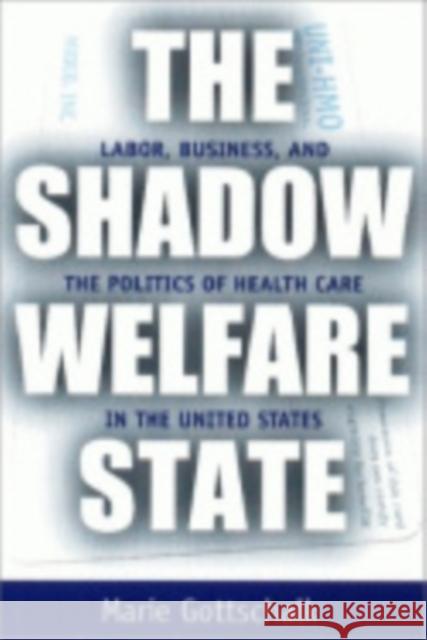The Shadow Welfare State » książka
The Shadow Welfare State
ISBN-13: 9780801437458 / Angielski / Twarda / 2000 / 304 str.
The Shadow Welfare State
ISBN-13: 9780801437458 / Angielski / Twarda / 2000 / 304 str.
(netto: 559,74 VAT: 5%)
Najniższa cena z 30 dni: 535,42
ok. 22 dni roboczych.
Darmowa dostawa!
Why, in the recent campaigns for universal health care, did organized labor maintain its support of employer-mandated insurance? Did labor's weakened condition prevent it from endorsing national health insurance? Marie Gottschalk demonstrates here that thc unions' surprising stance was a consequence of the peculiarly private nature of social policy in the United States. Her book combines a much-needed account of labor's important role in determining health care policy with a bold and incisive analysis of the American welfare state.
Gottschalk stresses that, in the United States, the social welfare system is anchored in thc private sector but backed by government policy. As a result, the private sector is a key political battlefield where business, labor, the state, and employees hotly contest matters such as health care. She maintains that the shadow welfare state of job-based benefits shaped the manner in which labor defined its policy interests and strategies. As evidence. Gottschalk examines the influence of the Taft-Hartley health and welfare funds, thc Employee Retirement Income Security Act (E.R.I.S.A.), and experience-rated health insurance, showing how they constrained labor from supporting universal health care.











